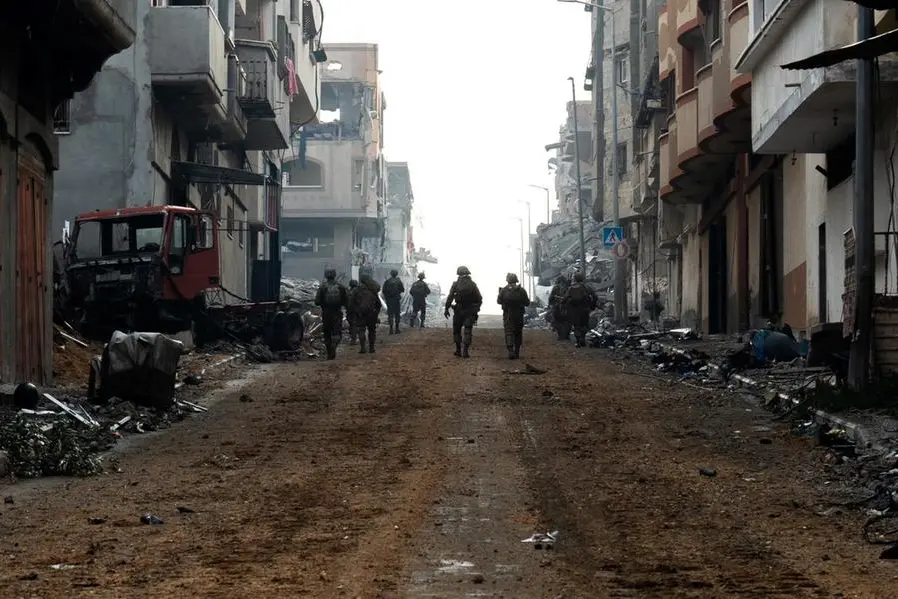PHOTO
CAIRO/GAZA/JERUSALEM - The U.S. said "very serious" negotiations were taking place on a new Gaza ceasefire and release of more Israeli hostages, but prospects for a deal remained uncertain as Hamas insisted it would not discuss anything less than a complete end to Israel's offensive in the Palestinian enclave.
Hamas leader Ismail Haniyeh visited Egypt on Wednesday for the first time in more than a month for discussions with Egyptian officials who are seeking to mediate another truce.
A source briefed on the negotiations said envoys were intensively discussing which of the hostages still held by Palestinian Islamist militants in Gaza could be freed in a new truce and which Palestinian prisoners Israel might release in return.
Islamic Jihad, a smaller Palestinian militant group that is also holding hostages in Gaza, said its leader would visit Egypt in coming days as well to discuss a possible end to the conflict.
"These are very serious discussions and negotiations, and we hope that they lead somewhere," White House spokesperson John Kirby told reporters aboard Air Force One on Wednesday.
But Taher Al-Nono, Haniyeh's media adviser, told Reuters that Hamas was not willing to discuss releasing more Israeli hostages until Israel ends its military campaign in Gaza and the volume of humanitarian aid to Palestinian civilians increases.
"The issue of prisoners can be negotiated after these two matters are achieved. We cannot talk about negotiations while Israel continues its aggression. Discussing any proposal related to prisoners must occur after the cessation of aggression," Nono said in an interview in Cairo.
Hamas rejects any further temporary pause in Israel's military campaign and says it will discuss only a permanent ceasefire. "We have talked with our brothers in Egypt, outlining our stance on this aggression and the urgent need to stop it as a top priority," Nono said.
Israel has insisted all remaining women and infirm men among the hostages be released, the source briefed on the negotiations said, declining to be identified. Palestinians convicted of serious offences could be on the list of prisoners to be freed by Israel.
BIDEN SAYS 'PUSHING' HOSTAGE DEAL
Now more than 10 weeks old, Israel launched its campaign in the Gaza Strip with the aim of annihilating Hamas after its fighters raided Israel on Oct. 7. They took some 240 hostages and killed 1,200 people, according to Israel.
Since then, Israel has waged a massive ground and air assault on the seaside enclave. Nearly 20,000 deaths have been confirmed by the Gazan health ministry, with several thousand more bodies believed to be trapped under rubble.
International aid groups say Gaza's 2.3 million people have been driven to the brink of catastrophe by wholesale destruction that has driven 90% of them from their homes and left many malnourished and gravely short of clean water and medical care.
U.S. President Joe Biden on Wednesday said he did not expect a second Israel-Hamas hostage release deal to be struck soon, though he added in remarks to reporters: "We're pushing."
Haniyeh's visit to Egypt was a rare personal intervention in diplomacy, something he has done in the past only when progress seemed likely. He last travelled to Egypt in early November before the announcement of the only ceasefire in the Gaza war so far, a week-long pause that saw the release of about 110 of Hamas' hostages.
Israel has not commented publicly on the talks in Egypt. But it has ruled out a permanent ceasefire and says it will only agree to limited humanitarian pauses until Hamas is defeated.
Israeli Prime Minister Benjamin Netanyahu repeated on Wednesday that the war would end only with Hamas eradicated, all hostages freed and Gaza posing no more threat to Israel.
"Whoever thinks we will stop is detached from reality...All Hamas terrorists, from the first to the last, are dead men walking," he said in a statement on Wednesday.
The U.S., Israel's closest ally, has stepped up calls in the past week for it to scale down its all-out war into a focused campaign against Hamas leaders and end what Biden has called "indiscriminate bombing" causing huge civilian casualties.
In a serious spillover from the war, Yemen's Houthi forces have been firing missiles and drones at commercial shipping in the Red Sea to underline support from Iran's Arab militia proxies for the Palestinians against Israel, and the U.S. this week set up a multinational force to ward off the attacks.
On Wednesday, the Houthis' leader warned they would strike U.S. warships if their forces were targeted by Washington.
The United Nations Security Council was due to vote on Thursday on a bid to boost aid to the Gaza Strip after a delay at the request of the U.S., diplomats said.
Aid into Gaza has gradually increased in recent days after the opening of a second crossing into the enclave. On Wednesday, Cyprus and Israel said they were exploring opening a sea route to bring more aid in, though no final agreement was reached.
(Reporting by Reporting by Nidal al-Mughrabi in Cairo, Bassam Masoud in Gaza, Dan Williams in Jerusalem and Steve Holland aboard Air Force One; Writing by Cynthia Osterman; Editing by Lisa Shumaker)





















